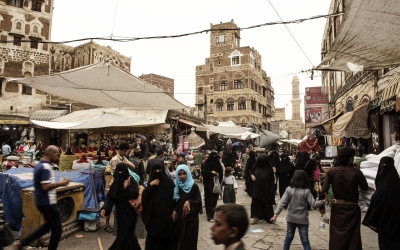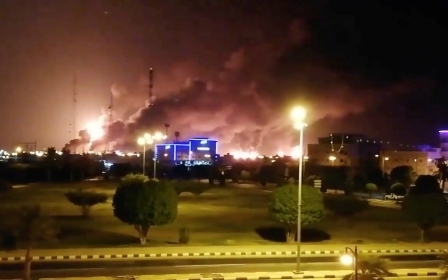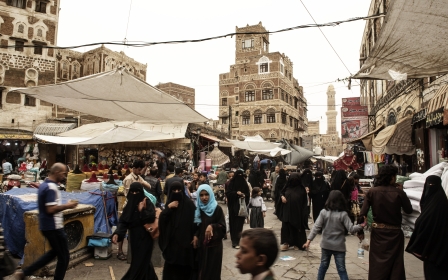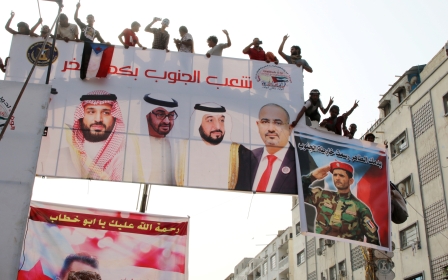Saudi-led coalition strikes Houthi sites north of Hodeidah after oil attacks
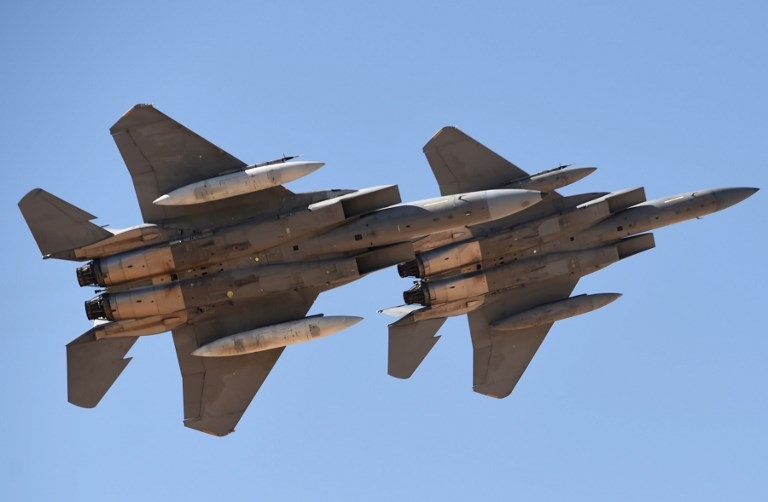
The Saudi-led coalition said it launched a military operation against Yemeni Houthi rebels on Thursday, in its first known strike since an attack on the kingdom's oil industry that was blamed on Iran.
The coalition said its operation destroyed four sites north of the port city of Hodeidah that were used by the rebels to assemble remote-controlled boats and sea mines, according to a statement released by the official Saudi Press Agency.
A Houthi spokesman described the attacks as a "dangerous escalation" that threatened a UN-brokered ceasefire accord in the Red Sea port.
"The concentrated raids on Hodeidah consitute a dangerous escalation that could blow up the Sweden agreement," Mohammed Abdul-Salam said on Twitter.
"The coalition will bear the responsibilty of this escalation which is also a test to the United Nations."
A Hodeidah ceasefire and troop redeployment agreement was reached last year at peace talks in Sweden as a trust-building measure to pave the way for talks to end the war, but it stalled for months before a Houthi withdrawal from three Red Sea ports.
'Remote-controlled, booby-trapped boat'
The coalition operation in the war-battered country comes after strikes on two Saudi oil facilities at the weekend knocked out half the kingdom's production, sending regional tensions soaring.
The coalition statement described the sites as a threat to maritime security in the crucial shipping lane of Bab al-Mandeb and the southern Red Sea.
Hours before announcing the operation, the coalition said it intercepted a "remote-controlled, booby-trapped boat" that the rebels aimed to use for a "terrorist act in the south of Red Sea".
The coalition said the boat was destroyed in the operation but it did not specify the target.
The coalition intervened in support of the Yemeni government in 2015 when President Abd Rabbuh Mansour Hadi fled into Saudi exile as the rebels closed in on his last remaining territory in and around the second city of Aden.
The conflict has since killed tens of thousands of people, most of them civilians, and driven millions more to the brink of famine in what the United Nations calls the world's worst humanitarian crisis.
The coalition, assisted by Western powers including the US, has struggled to oust the Houthis who have stepped up attacks on Saudi cities.
The rebels claimed responsibility for last weekend's attacks on Abqaiq, the world's largest oil processing facility, and the Khurais oil field in eastern Saudi Arabia.
But both Washington and Riyadh have ruled that out, saying the operation was beyond the Houthi's capabilities, and pinned the blame on Saudi Arabia's regional rival Iran.
Iraqi intelligence sources told Middle East Eye on Sunday that Iranian drones used in the attack were launched from southern Iraq.
Middle East Eye propose une couverture et une analyse indépendantes et incomparables du Moyen-Orient, de l’Afrique du Nord et d’autres régions du monde. Pour en savoir plus sur la reprise de ce contenu et les frais qui s’appliquent, veuillez remplir ce formulaire [en anglais]. Pour en savoir plus sur MEE, cliquez ici [en anglais].


